What To Do When There Is No Medical Help
No medical help? My biggest fear is for others when there is no medical help after a major disaster. I’m prepared to do many things, even stitches, if I had to do them. I can use a splint to help with a broken arm. Please note that I am not a doctor, nurse, or anyone in the medical field.
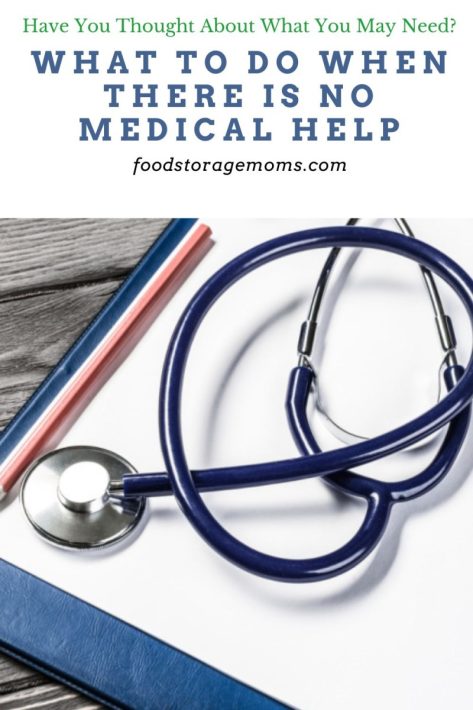
When I was young, we never ran to the doctor for anything. My mother used a purple violet spray on strep throat. Did it work? Well, I’m still alive. I grew up in the age of chicken pox, measles, and even polio. Medicine has come a long way, some for the better and others not so great. Trust me, I am not against using any doctors; I think we need to be prepared to take care of ourselves if the things go south, it’s not if, but when.
As I have told you before, Mark and I took some C.E.R.T. classes, where we learned to use splints, dress or not dress certain burns, label the wounded who were too far gone to help, and so much more. This will be hard for me because I love to help people, but more people need to know how to do a few minor medical procedures than ever before.
Hard Copy Books
If and when we have a grid down, you need some hard copy books to recognize some medical issues and do the very best you can. If it’s a grid down, your electronics won’t work, so you need to be ready with other options for necessary information.
This is how I see it: There are leaders and followers. After a disaster or griddown, we will have both these and more, like the disrupters. Some people may become upset after just a few days without electricity because they are unsure what to do. One or more people will take charge, and some will look to you for help.
This is why it is critical we have a few tools to get us through a minor or major collapse. No available professional medical help will be a huge issue. Here’s the deal: All medical personnel and emergency responders will be called to the hospitals or clinics. Possibly, even your local schools will become a place of refuge to help those needing medical help.
Well, this means we will be on our own. So, here are my thoughts to get us through something like this, all comments and responses will be greatly appreciated.
No Medical Help
Water:
Water will be a crucial element in hydrating people with very little water stored. I recommend storing at least 4 gallons of water per person per day. It’s pretty likely some of your neighbors will have no water at all stored. I’m not addressing food storage today.
First Aid Kit:
I have a printable list for you, but I would take stock of all the over-the-counter drugs you use quite regularly. Please add Benadryl, my neighbors borrow mine all the time. I stock and rotate all my over-the-counter drugs and essential oils. PRINTABLE: First Aid Kit
Over The Counter Medications:
I want you to consider what you have in your medicine cupboard and first aid kits. Are you prepared if someone in your home had a high fever tonight? Do you have the OTC medications you typically like to use in your house right now?
Let’s pretend all the pharmacies are closed, and no store in town will open in days or weeks because a major disaster has hit your town. Now what? We must rotate those OTC medications we like to use.
- Aspirin
- Tylenol
- Chapstick/lip gloss
- Apple Cider Vinegar
- Ibuprophen
- Motrin
- Cough Syrup
- Child appropriate medications
- Infant appropriate medications
- Antacids
- Benadryl
- Tylenol PM
- Vicks VapoRub
- Nasal Spray
- Methiolate
- Gentian Violet
- MercurochroNeoprinme
- Sinus Medication
- Essential Oils
- Neosporin
- Imodium-D (anti-diarrhea)
- Polysporin
- Zanfel to your medical preps: Poison Ivy, Oak or Sumac
First Aid Book:
Please get a hard copy, as we may not have the internet. The Survival Medicine Handbook
 First Aid Skills:
First Aid Skills:
Please learn CPR and take a C.E.R.T. class and an EMT class. Community Emergency Response Team
Remember, we may not have medical help for days, weeks, or months. I highly recommend this book above. If you have another medical book, that’s great. Let’s open a book like the one above and study it. Yes, study it.
Have a monthly meeting with your family, choose things from the book, and talk about what you would do with different illnesses, cuts, or burns. If we know, we will be prepared before we need to be. I’m not saying scare your family; I’m talking about discussions.
Bleach:
I realize some people are against bleach; we will need lots of bleach to get rid of MRSA or dangerous sewage contamination. Please note that bleach only lasts 9-12 months. Look into pool tablets for SHOCK treatments for water containers, like a backyard pool, and store some of them.
Supplies:
You can never have too many supplies, so start stocking up on all items we could use as a neighborhood to help ourselves and those around us. The pharmacies will be closed and empty after a major disaster. What you have in your house this very minute may be all you have to save your family. Supplies can be water, food, tools, knives, weapons, etc. Please order some N-95 or N-100 masks as you can afford them, you can never have too many.
Blankets:
We can always use all our blankets to lay critically hurt people on the ground or cover them to try and prevent shock. Never give away usable blankets.
Make Neighborhood Roster:
Please make a plan with neighbors interested in participating in a monthly meeting to share skills and things we can all bring to the table, so to speak, after a disaster.
I’ve said this before your neighbor down the street with a chainsaw may be your new best friend. Only include those neighbors you feel comfortable working with and can trust to step up and help.
Contact List Of Neighbors:
If and when power is restored, we need a list of contacts to email or call family members or neighbors. If a certain neighbor is critically hurt, we need to be able to contact a close family member or friend.
Critical Items:
Walkie-talkies, flashlights, headlamps, and whistles are must-have items. Remember, disasters don’t always happen during daylight hours. Please be prepared with batteries or solar flashlights.
Make a plan with neighbors:
Do it this week; next week may be too late. Only choose neighbors you can count on to be on your team. Decide who will be in charge, list the items each family has to contribute and teach others the skills we will all need to survive.
Pass a list around and list what emergency items we each have and need. I’m not talking about sharing how much food or cash you have, this is mainly getting to know your neighbors. Seeing them at church or school each week will NOT do the job.
If you work together to make a difference during and after a disaster, you must know your neighbors, or at least those you want to have on your team. Now, make a plan for survival as a team.
Garbage Bags:
Store many large black bags to dispose of refuse to burn later and also to cover the dead possibly.
Colored tape and large colored squares to label homes:
These are the tapes or colored cards we need in every home to help us know who needs help and who is okay right now. Triage Tape and Blue Tape
BLUE: a person who needs physical help lives in this home: Blue Tape
RED: needs immediate help: Red Tape
YELLOW: delay, does not need immediate help: Yellow Tape
GREEN: person or family is okay: Green Tape
BLACK: Deceased. Black Tape
Painter’s Sticks:
Get them from Home Depot or your local hardware store. They work great for splints. Store non-stick gauze to wrap a broken arm on the splint.
Classes :
Take a class on stitches and how to use a stethoscope. If we can’t help seriously hurt people, we must step over them and attend to those we can help. This sounds cold, but I learned this from my C.E.R.T. class. Those who are seriously hurt will have to wait for medical personnel. Yes, they may die, but we can only do what we can.
Take a class on CPR; you’ll be glad you did.
Final Word
I hope we never have to deal with this, but I know it’s inevitable, so we must be prepared for the unexpected. Please be ready to help your family and neighbors when medical help is unavailable.
What are your plans to be better prepared when medical help isn’t readily available? No medical assistance, then what? May God Bless this world, Linda
Copyright Images: Doctors Wooden Table Depositphotos_149712934_S Khakimullin, Desk Of Doctor With Medicine Things Depositphotos_134244550_S By Khakimullin

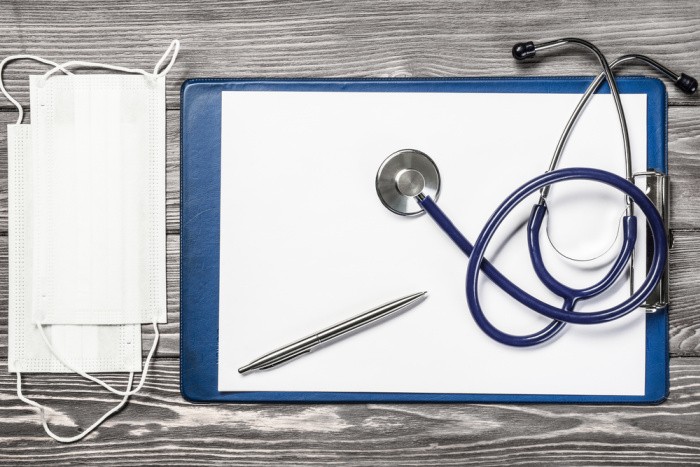

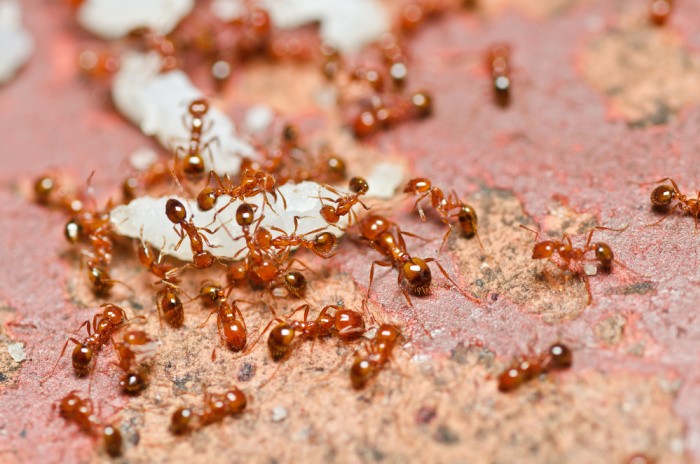
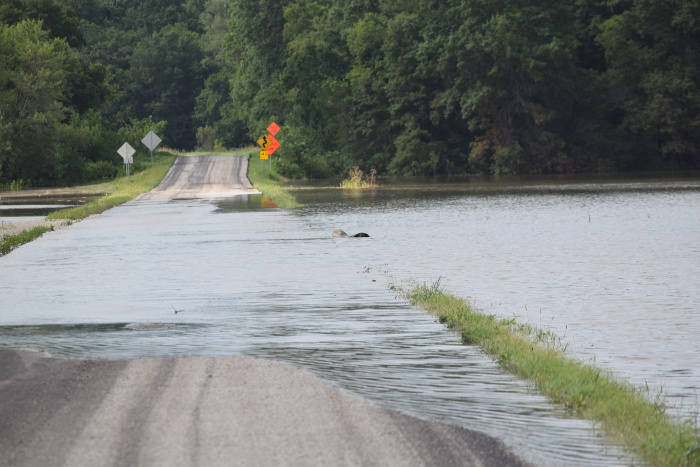
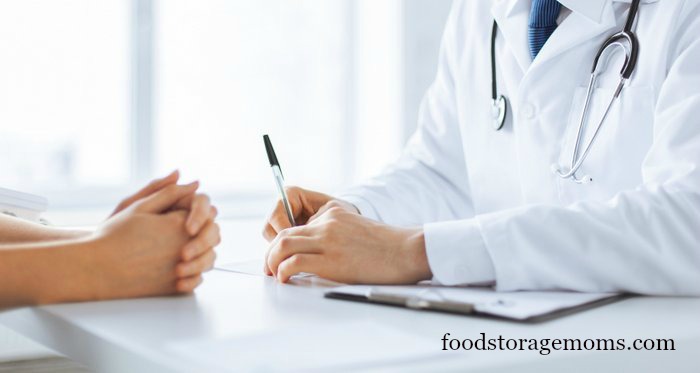
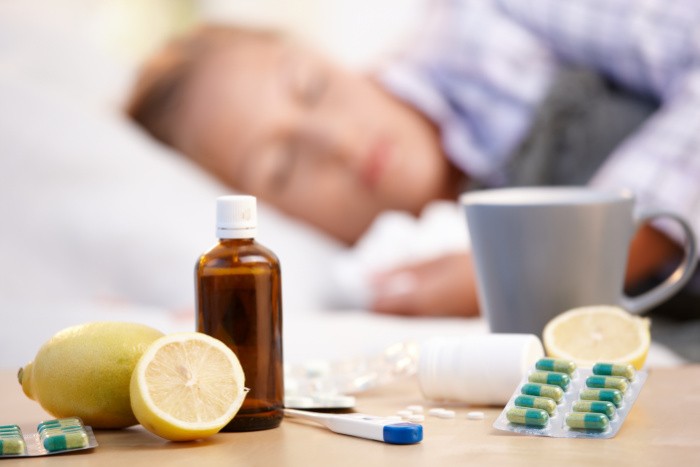
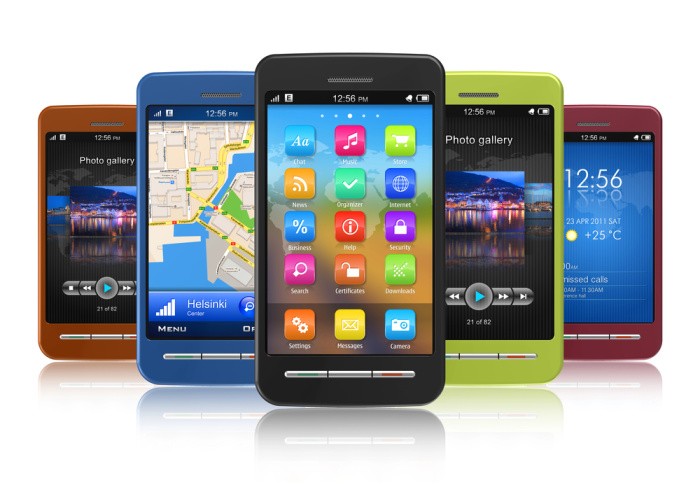
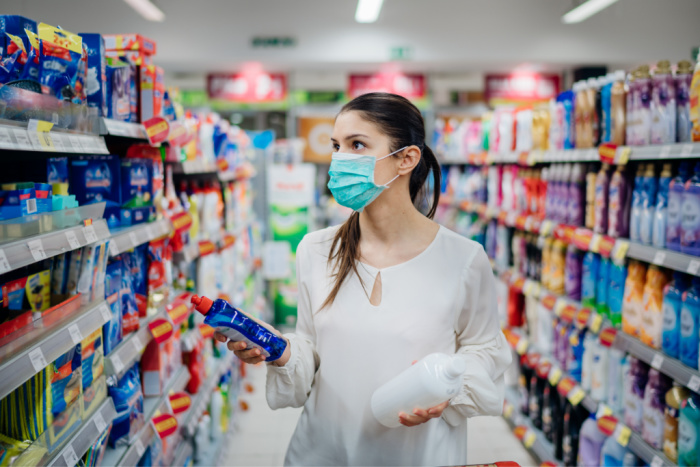











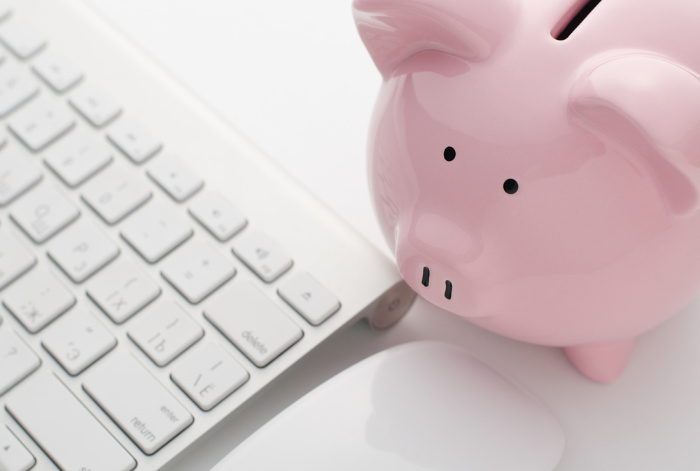

I so wish any of my neighbors would be on board. Most people in my neighborhood are older and have no interest in prepping or even coming to an HOA meeting. I keep a well stocked first aid kit and we are both trained in first aid and CPR. I would love to take the CERT course, but my husband is not interested. We do have one EMT in the neighborhood, but no other medical personnel. How do you get people on board?
Hi Liz, I can’t get my neighborhood on board either. A few are interested but really Mark and I will be taking care of ourselves. We are totally prepared but it’s a way of life for us. I can only pray for those that do not see why they need to be prepared. All you have to do is turn on the TV and BAM! Get some water, extra food, and flashlights people. May God bless those who will not heed the warnings. Linda
Good stuff
Neighbors are a far flung wishful dream in most cases.
There are a lot of “Stop The Bleed” free courses going around at schools, churches and hospitals right now. Calendars are online.
My weapon carry insurance also offers trauma classes. US Law Shield
I hear good things bout the Bloom and Doom classes too. I’ve not attended so I can’t speak firsthand.
I do have a team medic. He was an EMT till he hurt his back. He’s got the brains and we’ve got the the brawn lol.
Hi Matt, thank you! I wish we had more people like you in my neighborhood!! Thanks for the tip on these classes! I love your comment! Linda
Hi Linda,
Thanks for another good reminder on the importance of learning about medicine. It’s critical to acquire supplies, whether we know how to use them or not. In a future day, it will be easier to find a physician who knows how to use your supplies to care for your family than it will be to find the supplies. But for the best preparedness, learn how you can use your supplies.
Take, for example, Benadryl. One doctor suggests that it is the most important drug a layperson can carry in a first aid kit. The OTC pain relievers may be used more often, but Benadryl can save a life.
I posted a substantial article on Benadryl on my blog at https://prepschooldaily.blogspot.com. It appeared on November 13, 2018.
Happy Prepping!
Jennifer
Hi Jennifer, I love your comment! We all need to go and read your Benydryl article!! Linda
Jennifer,
I am a hospital physician and while diphenhydramine or Benadryl can help with secondary symptoms of an allergic response likes hives, itching etc it will NEVER save the life of someone developing anaphylaxis or a life threatening allergic response that can rapidly lead to respiratory failure, low blood pressure, circulatory collapse and possibly death. Scrounging around for Benadryl is a bad idea. Epinephrine must be given usually by a pen device, if out of hospital, rapidly when an at risk person is exposed to their allergen and then straight to the ER or call EMS. There is a HUGE push in the medical literature to re-educate older physicians on this. As a doctor and a mother of a child with severe anaphylaxis risk to peanuts, cashews, and pistachios, I don’t want someone to make the mistake of giving Benadryl to someone with a true allergy and think that will save their life. I terribly fear a grid down situation for my child when there is no more epinephrine. Benadryl would not save her.
Hi Kelley, thanks so much for your comment!! We need to know this! We would need a prescription for the Epinephrine, most of us could not get that. Great reminder there is a BIG difference between the two. Thank you so much for sharing your medical advice. Linda
Hi Kelley,
(I thought I clicked the button to reply to you directly, but somehow it posted below. I re-posted here so that you and others could read my response.)
Thank you so much for your comment. As I noted at the very beginning of my blog post, Benadryl was given by the nurse and EMT (husband and wife) on duty to one of the girls at camp who had no history of any allergies. While they had epinephrine if it was absolutely needed, because of other potential problems associated with using epinephrine far away from a hospital, they preferred to go with Benadryl. Benadryl was all they used for her. This girl has since tested positive for many nut allergies and must carry epi at all times.
Anyone who has a true allergy should carry an epi pen and be able to use it at all times. The ER doctors I have taken off-grid medicine classes from have all said epi is best for a true allergy. They have also said that Benadryl is something they use first before reaching for epinephrine in milder cases. A nut allergy would probably not be considered a milder case. However, both of these doctors also said that they would use it if there were no alternative, and a collapsed society with no higher medical care would be considered “no alternative” in my opinion. We are not talking about a situation where there are paramedics and a hospital right down the street.
When there is no doctor and no hospital and someone starts showing signs of an allergic reaction, like our girl at camp last year, Benadryl can be very useful. In our situation, because no one in our family has any history of true allergies, we do not carry or store epinephrine. The adults have been trained and know how to use an epi pen (“orange to the thigh, blue to the sky), but it’s too expensive and has too short a shelf life. Our medical prepping dollars are best spent elsewhere. Benadryl is all we will have. Unfortunately, some people are going to die without their life-saving medications.
Benadryl may not buy time, but then again, it might. I would never substitute it for epi in a true allergy, and I wouldn’t suggest it to others. People who need epi had better be carrying it and everyone around them needs to know about it and how to use the epi pen.
Also, what would you do if there were no epinephrine and no hospitals? Some children outgrow (gradually or somewhat) their allergies. Would you not even try Benadryl? Even if there were only the slightest chance?
Jennifer,
I think this is a great discussion! What parent wouldn’t do anything to save their child’s life if their life saving medication was not available? A similar experience happened the first time my daugter was exposed to cashews and I just gave her Benadryl, as we were at home , which helped the hives and then when I was certain she was not having anaphylaxis, we went straight to get tested by the allergy specialist a few days later. Even as a doctor, her allergist scolded me a little for not going to the ER. He explained after each exposure the allergy system gets “primed” for an even more severe and faster response the next time which is why it seems Benadryl might “work” the first one or two exposures. I agree with you if there is no epinephrine available, the allergy has never been confirmed, the patient is stable, no higher medical care is available anywhere, it could be tried. We have not even discussed how crazy difficult it has been to get epinephrine lately with the drug shortage and outrageous costs! Yes and as you said short shelf life. Yikes! The allergist also said maybe she will “outgrow” some of her allergies and suggested retesting as she nears the age to go off to college. There is a promising new immunotherapy for peanuts aka allergy shots that we might consider, if available, to desensitize as she nears going to college if she is still allergic. To my knowledge nothing is available for other nuts. I read your blog and find it informative and enjoyed it! Just wanted to stress Benadryl would only be used first line if unconfirmed allergy, no epinephrine availble, a Medical professional was not finding anything to suggest anaphylaxis etc as you clarified above. Thanks so much.
Absolutely. I have no desire to do anything at all if there’s a doctor and medicine around! Let me go back to my corner and knit!
But I have a responsibility to my family, so I have to learn and be prepared to do what I can, if there is no other option.
Since you and your family are traveling down this nut allergy path, I thought you might have done some studying on the subject. Is there anything parents should or should not be doing to possibly prevent these allergies from developing? I thought I read something in the past that babies exposed to peanuts (peanut butter) at a younger age were less likely to develop a peanut allergy. And I know I’ve read that babies and children raised in less than neat-freak clean conditions are less likely to develop environmental allergies.
There are no allergies, other than hay fever, among my children, and they’ve been raised in a rural area with lots of animals. But in a few years they may be having children of their own, so now I wonder. BIL and his wife are neat-freak clean, and their oldest has all kinds of environmental and food allergies, including some nut allergies.
My sister is an EMT ,my grand daughter is in nursing school and the lady across the road is an ex-army nurse. So hopefully I will be ok ,unless I need a surgery of some kind. I have medical supplies in 5 gallon buckets. I try to stock up on band aids and gauze when I go to the dollar stores.I have essential oils of all kinds. I also have several medical books. I only know of one neighbor (the one across the road) that has even considered prepping. Most just laugh at me and say they don’t need to be that paranoid. I was hoping that the recent water issues would change some minds, but that doesn’t seem to be the case.
I sure hope nothing serious happens here. God help them if it does. Thank you for a great list.God Bless
Hi Judy, I think you are going to be in great shape after a disaster. You have a sister, the army lady, and your granddaughter. I can’t figure out why people don’t get it. It’s like they assume nothing will happen to them. I taught a class once on food storage and emergency preps. One lady thought we were hoarders if we have excess food. LOL! Sometimes I see a Hoarder show pop up on the TV. I have to giggle because we are not hoarders. LOL! We can sleep at night Judy, that’s how we roll! Linda
Linda,
Once again I’m going to recommend you add Zanfel to your medical preps. Poison Ivy, Oak or Sumac may not be fatal but Zanfel resolves the problem almost immediately. I would have killed for this stuff when I was a kid.
I’m fortunate in that my MAG (Mutual Assistance Group) includes a physician and two RN’s. My advice is to try to recruit such into your own group. Still looking for a dentist though.
Hi. Ray, I just added Zanfel to my list, thank you for the reminder!! I wish I had a MAG, you are are so awesome, my friend! We do have some medical people in the neighborhood, our dentist as well. You are so fortunate! Linda
Linda,
Regarding “hoarding”–used to be the NDAA (National Defense Authorization Act) included a provision that anyone who had more than a 7 day supply of food on hand was a hoarder, and during an emergency such supplies were subject to confiscation. Hopefully, recent Supreme Court decisions limiting the power of Federal Agencies will eliminate that concern but be aware that it may still be the “law.” FEMA regulations included similar provisions.
Hi Ray, wow, let’s hope the “law” doesn’t come to that. What’s funny I bet there are people who do not even have a 7 day or a 3 day supply of food for that matter. Hmmmmm, this might be interesting! Thanks for the heads up, Linda
Linda,
That’s why some folks have hidden caches of supplies. Maybe not a good idea to have all your eggs in one basket. Whether in a hidden root cellar, a buried freezer, or a storage unit rented under a buddy’s name, caches can be life savers.
Hi Ray, that makes sense, I need to think about where to put one, I love it. Linda
Not sure why I didn’t comment on this post when it first came out but…
I am not a skilled medical person but I do know basic first aid and cpr. I also know quite a bit about using herbal preparations, using both domesticated herbs as well as foraged “natural” herbs. I also have studied the use of essential oils. I am NOT an herbalist but in a pinch, I am able to refer to one of my many herbal and EO books for possible solutions to most minor health issues. That said, I also keep a pretty good stock of dried herbs and EOs for teas, infusion, salves, syrups and the like. I DO NOT recommend internal use of EOs and other than one or two EOs, strongly recommend the use of most oils in a carrier oil as they are too strong for straight usage. Of course, that also depends on the usage.
All of that being said, I also don’t recommend ANYONE use herbs or EOs without education and books on the subjects as well as tried and true recipes for their use.
There are a number of on-line courses on the use of herbs: Learning Herbs (dot) com is one I highly recommend. Also, I recommend books for foraging, anything by Rosemary Gladstar, herbs from Mountain Rose Herbs out of Oregon (all organically grown and sustainable harvested).
Hi Leanne, I totally agree with you, please do the research before using items you don’t know anything about. I think I have all the books, you recommended. They are in my storage unit. Linda
Thanks to all for your marvelous posts that detail many ideas about allergies. For those who only deal with mild to moderate allergies, please remember that you can use Vitamins, Herbs and Essential Oils to combat allergy attacks. Probably not sufficient to help with anaphylaxis, though. In that case, I think you should definitely go with the Epi-pen. Vitamin C with 600 mg. of ALA is what my allergist, specialist told me to take to combat bad allergies to foods/supplements. You can use tea made of Nettle Herb for rashes and itchiness and it also provides the body with much needed minerals (so we add it to soups in the winter), and Lavender Oil (I only use Young Living’s because it is certified and proven to be exceptionally true to what it says on the label, as well as grown in a somewhat controlled/regenerative growing system. FYI, I have ALSO heard that fevers can be brought down by putting Peppermint Oil on the bottom of the feet! There is so much more that can be handled by natural medicine. Do your research! And, yes, I do think Dr. Alton and wife are very informative! My favorite oils are not only Frankincense, but the Eucalyptus Oils (very good for respiratory viruses), which is why my go-to is Young Living’s R.C. Oil.
Also, I might mention here that my professor at the NE Institute of Botanical Medicine swears that the most valuable pepper food for emergencies is PRUNES/DRIED PLUMS! Apparently, they contain a myriad of vitamins and minerals as well as plenty of fiber. Me, myself and I, I just purchased more Spiralina for emergency food. And don”t forget quality sea salt, like Redmond’s for the electrolytes when you’ve been working outside in the sun and just plain improving the mineral content of foods in a crisis. There is so much more! If you wish to find out more about my natural suggestions, please reply and give me your email address, so I can send you more info. BTW, I also just found out that when you forage for wild foods, make sure to include Plantain (weed/herb), either common or lance variety. It is very nutritious! It also has a valuable use as a drawing herb for pulling out splinters, etc.
Joyce E. Stotts
Certified Natural Health Professional since 2006
Graduate of the NorthEast Institute of Botanical Medicine
and constant learner about natural remedies and supplements
Hi Jess, I had never heard about peppermint oil on the feet. for bringing down fevers, I love that! I learned something new today, thank you! You have so much knowledge I’m always learning something new from you, thank you,my sweet friend! Frankincense and Eucalyptus Oils are two of my favorite ones! Linda
OF COURSE, good old spell check Is screwing up my posts again. The product I highly recommend is called Spirulina, not spiralina NOR spiraling! Geepers! How I hate spell check some days!! ALMOST every time I fix the spelling, spell check goes back to screw it up again!!! Someone needs to teach SPELL CHECK that there are botanical and medical terms in the universe, too!!
HI Jess, I hear you on spell check, its so frustrating! LOL! Linda
I have always had extra Rx’s if I can get them. I can do quite well except my Chemo medicine. I can only get one month at a time and it costs $16,000! Yup, you read that right. Luckily the oncologist gets grants to cover these horrendous meds (I hate Big Pharma-one of those CEO guys should sell their yacht so I can live!). If ever there is an apocolypse, it’s a good thing I have all my affairs in orders!
I’ve been so tired from the effects of my CLL that I’ve let my storage slide. I really need to go through the dates of things. I know we can weather a large storm, etc., just no longer the 2 years or so I thought we had been prepared for.
Funny you mentioned book books. I’m a big proponent of having First Aid and medical books on hand. I don’t want to rely on the internet or electricty. I just go through reading all the 299Days books. Wow, taught me stuff I hadn’t realized!
Happy Fourth of July everyone!
Hi Robbie, my sweet friend!! Oh my gosh, you have been through the wringer, I’m so sorry what you are going through. No one can afford those medications. I have never heard of the 299Days Book Series, I’m ordering one today, thank you for telling me about them. WOW! You’re the best! I wish we could have gone to dinner this year, hopefully next year. Hugs, Linda